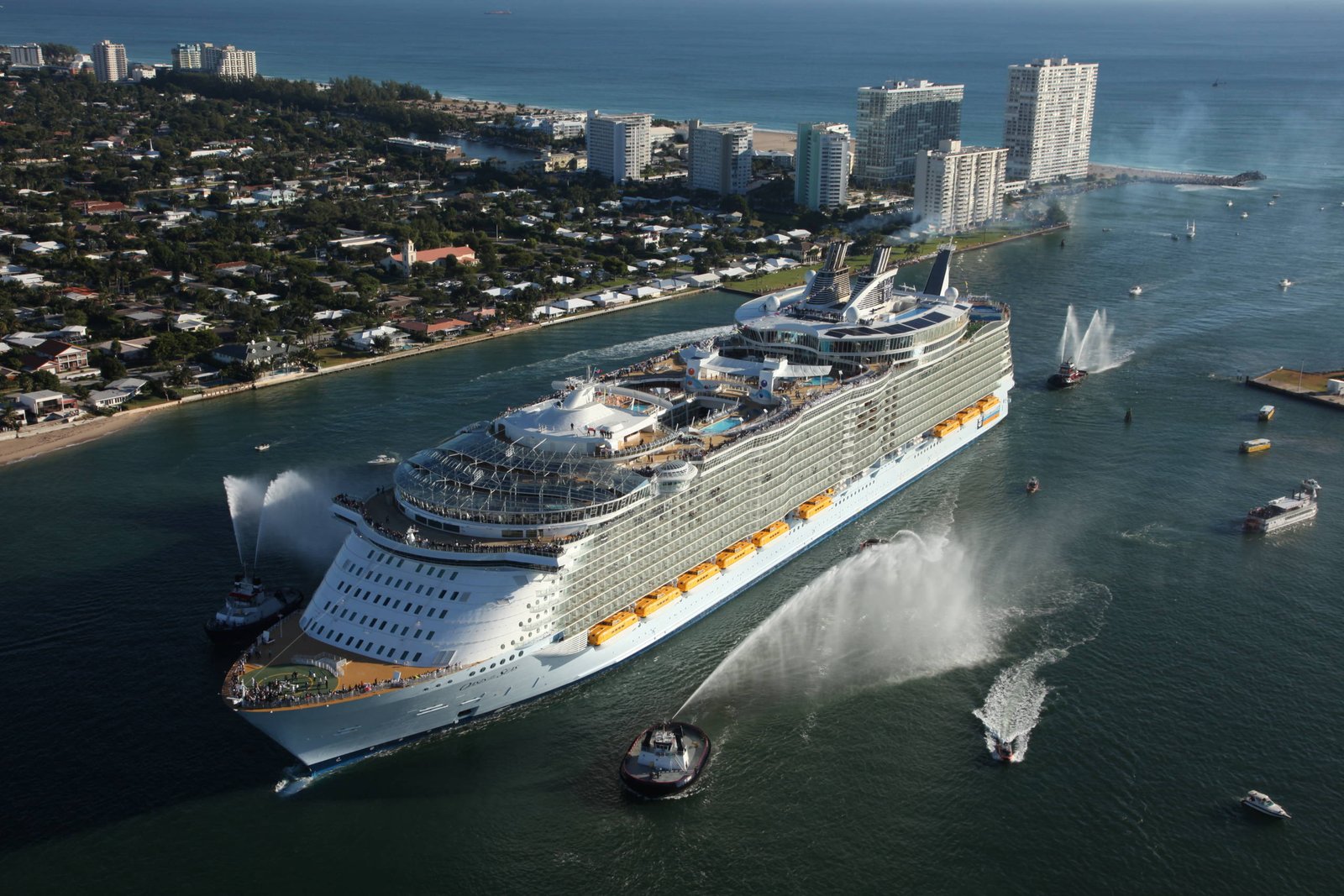If you’ve landed on this page, you’re probably thinking about taking a cruise for the first time. But you’re also wondering if a cruise is really right for you.
You’re now in a precarious position — one where you might be unduly influenced by friends, family or even strangers with thoughts on cruising that might not necessarily be helpful.
If you ask a cruising fan whether you should go on a cruise, the chances are she or he is going to tell you just one thing: “All cruises are stupendous. There’s no way you won’t love it.”
For more cruise guides, news and tips, sign up for TPG’s cruise newsletter.
The world of cruise fans is like that. It’s a bit of a cult.
On the flip side, if you ask a non-cruiser whether you should try a cruise, you might get the opposite response: “Why would anyone want to go on a cruise?”
Non-cruisers are non-cruisers for a reason.
The truth is, neither response is what you need to make an informed decision.
The answer to whether a cruise is right for you is much more nuanced. It depends a lot on what sort of traveler you are. Do you like trips that are well planned out in advance or trips that start with no plan at all? Are you a fan of resort environments? Do you like group travel? Do you love being pampered above all else?
Some cruise ships are like floating versions of giant resorts on land with all sorts of deck-top amusements, including surfing simulators, basketball courts and miniature golf courses. MICHEL VERDURE/ROYAL CARIBBEAN
And, perhaps most important: What do you like to eat when you’re away from home?
The answer to whether you will like a cruise depends on stuff like that — and much more.
As a travel writer who has specialized in cruising for more than two decades, I’ve been on a lot of cruises (more than 200 on nearly 170 distinct ships), and I’ve met thousands of cruisers. I’ve talked to many of them about what they like and don’t like about cruising.
What I’ve learned during all these conversations is that, indeed, a cruise is not for everyone – even if it can be a wonderful experience for a lot of people.
Related: The 5 best cruise lines for families
When people ask me personally whether they should try a cruise, I start by telling them that it depends. And then I tell them to ask themselves the seven questions below. Call it my “should-I-cruise” litmus test.
In answering such questions, you’ll start to get a sense of whether you’re ready to join the ever-growing cruising cult — or if you’d rather leave the high seas (and rolling rivers) behind.
Do I prefer trips that are heavily planned out in advance or left up to serendipity?
There are some people who like to head off on vacation with no idea of where they will be or what they will be doing from day to day. They like the flexibility that comes with not having too much planned ahead of time. Others like to have their travel schedules much more mapped out in advance.
Cruising is best suited to the latter group.
Sure, you will have some flexibility in what you can do on any given day of a cruise. But the broad outline of your trip is pre-planned and set in stone. As with motorcoach tours, it’s an “if it’s Tuesday, it must be Belgium” kind of vacation.
Related: A beginner’s guide to picking a cruise line
If you’re sailing for a week in the Western Mediterranean, for instance, you’ll probably get eight hours in Rome (after docking in the nearby port of Civitavecchia). If you’re so blown away by the city that you want to stay over an extra night (and we bet you will be), you’re out of luck. You’ll be due back at the ship by the late afternoon for the sail-away to the next port — probably Livorno, Italy (the gateway to Florence and Pisa) or Naples, Italy.
Once at that next port, you’ll get another eight hours to explore before needing to be back on board for the sailing to the next destination. It’s all been arranged in advance.
The advantage of such a pre-planned vacation, of course, is that it takes away a lot of the hassle that comes with traveling. Your cruise line has done all the heavy lifting of figuring out an ideal, multi-day getaway for you. The cruise line is selling you a complete package of travel needs including a room, food and entertainment, and it’ll deliver you almost daily to someplace new to explore. On some cruises — particularly river cruises and so-called expedition cruises (voyages to very remote places on small, hardy ships) — the lines even pre-arrange all of your daily tours. You basically just show up.
Do I enjoy travel experiences that revolve around a single resort that offers lodging, meals and activities?
Cruise ships will take you to multiple destinations on a single trip. But at their core, what they offer is closer to what you’ll find at an all-inclusive resort on land than any other sort of travel experience. At least, this is the case for the bigger cruise ships that account for the majority of all cruise travel.
Even during a very port-intensive itinerary on most ships, you likely will spend the vast majority of your vacation hours on board your vessel. Unless you book a rare overnight excursion, you will spend all of your nights on board your ship, and you’ll probably eat most of your meals on the vessel, too. On most ships, all or almost all of your evening entertainment also will be ship-based.
Many people just love this sort of vacation. It’s a lot like going to Disney World near Orlando or to an all-inclusive Sandals resort, where you can spend a wonderful week without ever leaving the property.
For others, it’s too much vacation time devoted to a single, contained resort environment that doesn’t leave enough time for exploring the outside world.
Am I OK with crowds?
Royal Caribbean’s Perfect Day at CocoCay. ROYAL CARIBBEAN
There are plenty of small cruise vessels that are like boutique hotels, with just 50 or 100 rooms. But the ships that the vast majority of cruisers sail on today are far bigger than that, and they generally are packed with a lot of people.
The world’s biggest cruise ships, such as the Oasis-class vessels operated by Royal Caribbean, often sail with more than 6,000 passengers apiece. And that’s not including the 2,000 or so crew members that are aboard the biggest cruise vessels. If you book one of these vessels, you could be sharing your vacation with more than 8,000 other people.
These are very big ships, mind you, with lots of room to spread out. Royal Caribbean’s Icon of the Seas — the world’s largest cruise ship — has 18 passenger decks, quite a few of which are devoted to a seemingly endless array of family-friendly attractions, restaurants, lounges, bars and other venues that can absorb huge numbers of vacationers.
Related: The 6 classes of Royal Caribbean ships, explained
But if the idea of vacationing at a resort where you are one of thousands doesn’t appeal to you, you probably should stay away from most of the vessels operated by the major cruise lines. You might be better off with a land-based trip — or a sailing on one of the lines such as Windstar Cruises or Ponant that specialize in more intimate sailings on very small ships.
Am I comfortable touring as part of a group?
In some respects, cruises are very similar to group tours on land. You will be traveling for your entire voyage with one (very big) group of people, and you may find yourself in a group setting for some or all of your touring in ports.
Just how much of a group-tour feel your cruise has will depend a lot on which ship you are on and how you arrange your port activities. On river cruises and expedition cruises, in particular, off-ship activities often are generally done as a group. Group tours in ports are part of the package for which you have paid in advance. On traditional ocean-going ships, you generally have more flexibility to tour on your own in ports versus joining a group.
Related: Which…

